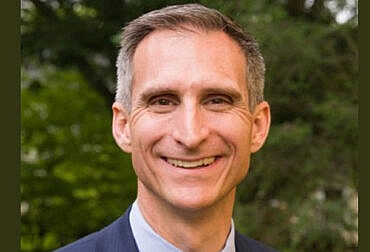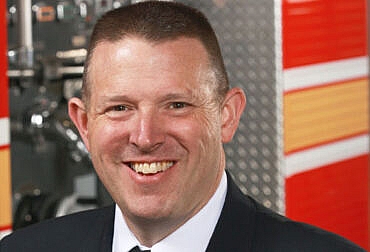Nagender Madavaram discussed with Dr. Raymond Crowel, Director of the Montgomery County Department of Health and Human Services (DHHS) about his leadership during Covid. Dr. Crowel served as the Chief of Behavioral Health and Crisis Services for Montgomery County for ten years prior to becoming the Director, DHHS. He is a Clinical Psychologist with more than 30 years of experience. This is the second of a 2-part transcript of the interview which covered the topics of pay equity for nursing staff, Substance Abuse Prevention Program, business with DHHS and DHHS grants.
Pay equity for Nursing Staff:
Nagender Madavaram: Nurses in MCPS are getting less pay in comparison with their counterparts in other places. There is shortage for nurses in healthcare industry and there is a possibility of losing the staff. They work in MCPS but get pay from DHHS. Is there any way to address their pay equity problem?
Dr. Raymond Crowel: There’s a lot of going on. I think that’s one of the things that we have done in a number of places. There is a gap in what we pay for school health nursing staff and what they may make in privately owned hospitals. You know, we’ve asked our Office of Human Resources to take a look at that and to see whether there is a chance for an equity adjustment. I just want to say that they have done a remarkable job in the last two years. When we closed schools, we needed staff to test and vaccinate. They were available. So, we asked them to come over and take on the role of standing by at test sites. They did a remarkable job. When vaccines became available, they vaccinated people. There was no break for them. They’re tired but they worked continuously. So, we are looking with Office of Human Resources to see what we might be able to do to create an equity in compensation and bring it up to market levels.
Substance Abuse Prevention Program:
Nagender Madavaram: You have Substance Abuse Prevention Program. How it is working in pandemic? Is the program facing impediments during Covid?
Dr. Raymond Crowel: Well, you get more and more abuse during pandemic. One of the dangerous risks of poor person is isolation and being disconnected from support services. Exactly, Covid created that scenario for people who are recovered. The individuals couldn’t get the treatment for a very short period of time. They couldn’t spend time with people who were protective of them. Unfortunately, there was an increase in the number of opioid related overdose deaths across the county and across the state. I’ve looked at the data recently, we’ve been making really good progress up until pandemic started and we lost some ground. Recovery specialists did remarkable things. They were going into the hospitals to meet with people who were overdosing but they couldn’t do that anymore during pandemic. So, they connected through a virtual assistant to get them treatment. Our recovery team created a countywide virtual network. They try to make sure that they could find places for people to go, to get detoxed and to get treatment. Every treatment center came online. We finished the building, opened the building and we expanded the capacity of the job of integrating treatment during the pandemic. The facility opened last spring and so we were happy to see that is functioning. The harm reduction is a big emphasis for us. The syringe exchange program is designed to provide the new treatment.
We have expanded our efforts to do virtual training in the use of Naloxone and distribute new Naloxone to the people. We started a Fentanyl test strip program for folks. Fentanyl has invaded every substance that’s being abused. You could find Fentanyl in mixing with cocaine and heroin. You find people who are selling fentanyl directly. So, it’s in all the opioids now. So, test strips help people who are still using know that Fentanyl in there. Well, the team is now looking at how do we expand our outreach treatment? Our outreach is aiming to get some more people and even more messaging out into the streets about treatment options. We’re also in the process now working out on a restoration center. The restoration center will have a detox space for folks who are inebriated rather than take them to the hospital or take them to jail. A place where you may be getting a treatment as well as mental health stabilization services. The Council and the County Executive said that we need to move forward on this plan. We are moving forward on those fronts as well.
Nagender Madavaram: The County has an IT Department with fulltime Director. You have your own IT Department. The County is running on virtual machines and you need efficient services. How the two departments are coordinating?
Dr. Raymond Crowel: We’ve had a separate IT department, but we absolutely coordinate with Director Gail Roper all the time on a lot of the pieces of work. Our effort is to support a social justice program for vaccination which required creation of some databases and some technology to track. In crosswalk, where there was a lot of work to develop databases and applications to keep and maintain records of vaccination.
Business with DHHS:
Nagender Madavaram: It looks like you have many vendors and service providers to do business with DHHS.
Dr. Raymond Crowel: Well, you know there’s a whole array of mental health providers. Obviously, the developmental disability community is full of private providers. A lot of the work of Human Services is done in partnership with private providers. We have brought providers to do some of the work where we needed. Our IT department is small, so we do contract with light providers for some of the development work for our systems. You know, we’ve provided constant array of things, taxi cab services and transportation services. We have a very large contract in operation. We have probably about 500 contracts that are in the department profile of regular service areas. We have medical translation needs and medical interpretation needs that are unique to the department. So, it requires a specialized service and support. So, we do have contract with that as well.
All of our work in all of our contracts, flow through the whole county system. We do a fair amount of work on contract development. Contract monitors will write scopes and will monitor contracts with final approval comes through procurement. We buy services and put out the RFP’s. The work of managing the contracts and paying vendors is with us.
DHHS Grants:
Nagender Madavaram: Grants is another interesting topic. It has become big problem for new applicants to get grants as established organizations are taking most of the grants. What role your department plays in awarding DHHS grants?
Dr. Raymond Crowel: So, you know one of the odd things about our grants program, during COVID, we made a lot of procurements for services. We don’t manage necessarily grant programs that were sitting in the County Executive Office and in the County Council Office. We may give our input into them, but they decide how much money they’re going to put out. The Executive would do some and County Council would do some. I understand, they emerged them into a single grant operation. What they’ve done in terms of changing the eligibility criteria, so you have to really talk with them. We do a very tiny grant program that is really, purely infrastructure grants for providers. We probably make something very simple process. We’re not talking sustainability because we’re not asking about staffing. We have generally funny things at a staff related, so it’s more infrastructure. Laptops, computers and refrigerators for your program and refund you for some other things.
So, what happens with the grants once they are awarded? Sometimes, procurement or finance call us and ask, do you think this grant belongs to you or does it belong to somebody else? We are responsible for administering the DHHS grants if it’s in any kind of way related to Human Services. Apart from administration, our job is to write the scope and contract. We get all the signatures in place, monitor implementation and pay the bill. It looks for outside people that we are awarding grants. In fact, that is not true. We’re responsible for the administration of the grant and for making sure that it’s operating. Our job is to collect that information for executing the grant but the application process and review process are handled between the Council and the County Executive’s Office.











